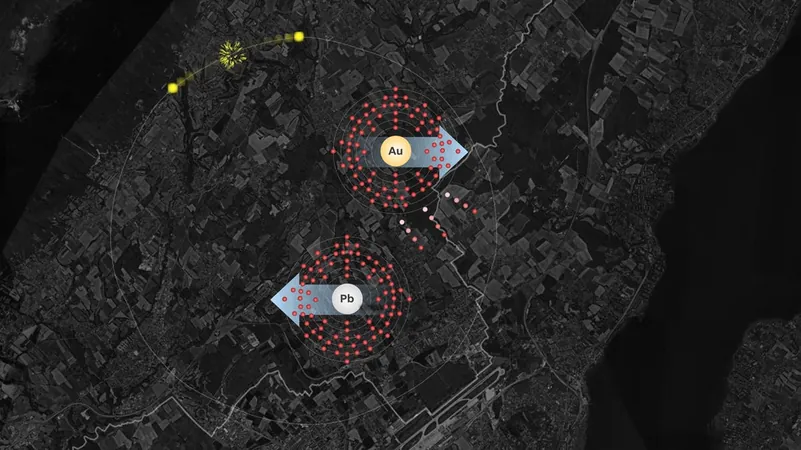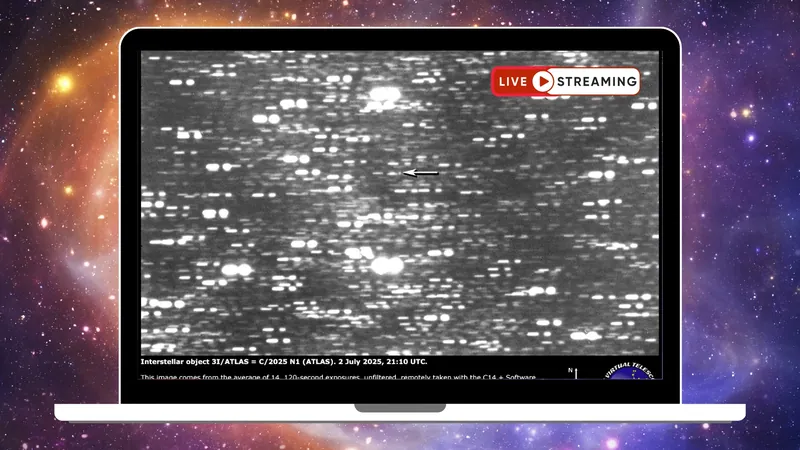
CERN's Fascinating Experiment: Turning Lead into Gold, Even if Just for a Moment!
2025-05-16
Author: Michael
From Alchemy to Particle Physics: A Historic Leap
For centuries, alchemists dreamed of transforming lead into gold, grappling with mysterious processes. Fast forward to today, physicists at CERN's Large Hadron Collider have achieved what was once thought impossible—albeit for just a fleeting microsecond!
The Science Behind the Magic
Alchemists favored lead due to its abundance and similar atomic properties to gold. With lead atoms having 82 protons compared to gold's 79, it seemed like the perfect candidate for transmutation.
Instead of mystical formulas, scientists utilized the world's largest particle accelerator, smashing beams of lead ions together at staggering near-light speeds. During these collisions, some lead atoms managed to shed three protons, momentarily becoming gold atoms.
A Moment of Gold: Just a Microsecond Long
Though impressive, this transformation was fleeting—CERN reported that a staggering 86 billion gold nuclei were created, totaling around 29 trillionths of a gram across four experiments conducted between 2015 and 2018. Unfortunately, these gold atoms existed for only about one microsecond before disintegrating.
How the Collider Works its Wonders
The Large Hadron Collider employs a remarkable process known as electromagnetic dissociation. When lead ions approach each other, their intense electromagnetic fields can cause an intriguing phenomenon where one lead atom vibrates, ejecting three protons and transforming into a gold atom. However, these newly formed gold atoms are extremely unstable.
What Is the Large Hadron Collider?
Located about 575 feet underground near Geneva, the Large Hadron Collider is a marvel of engineering—a 17-mile ring of superconducting magnets and detectors. Commissioned in 2008 after a decade of construction, it remains the most powerful particle accelerator on the planet.
Among its groundbreaking achievements is the 2012 discovery of the Higgs boson, a fundamental particle essential for explaining how matter acquires mass. The collider's primary goal? To recreate the conditions of the universe just moments after the Big Bang and study the particles that emerged.
A Glimpse into the Future
While the quest for turning lead into gold may not yield treasures for alchemists, CERN's experiments push the boundaries of what we know about matter and the universe. As science continues to evolve, who knows what other 'golden' discoveries lie ahead?









 Brasil (PT)
Brasil (PT)
 Canada (EN)
Canada (EN)
 Chile (ES)
Chile (ES)
 Česko (CS)
Česko (CS)
 대한민국 (KO)
대한민국 (KO)
 España (ES)
España (ES)
 France (FR)
France (FR)
 Hong Kong (EN)
Hong Kong (EN)
 Italia (IT)
Italia (IT)
 日本 (JA)
日本 (JA)
 Magyarország (HU)
Magyarország (HU)
 Norge (NO)
Norge (NO)
 Polska (PL)
Polska (PL)
 Schweiz (DE)
Schweiz (DE)
 Singapore (EN)
Singapore (EN)
 Sverige (SV)
Sverige (SV)
 Suomi (FI)
Suomi (FI)
 Türkiye (TR)
Türkiye (TR)
 الإمارات العربية المتحدة (AR)
الإمارات العربية المتحدة (AR)